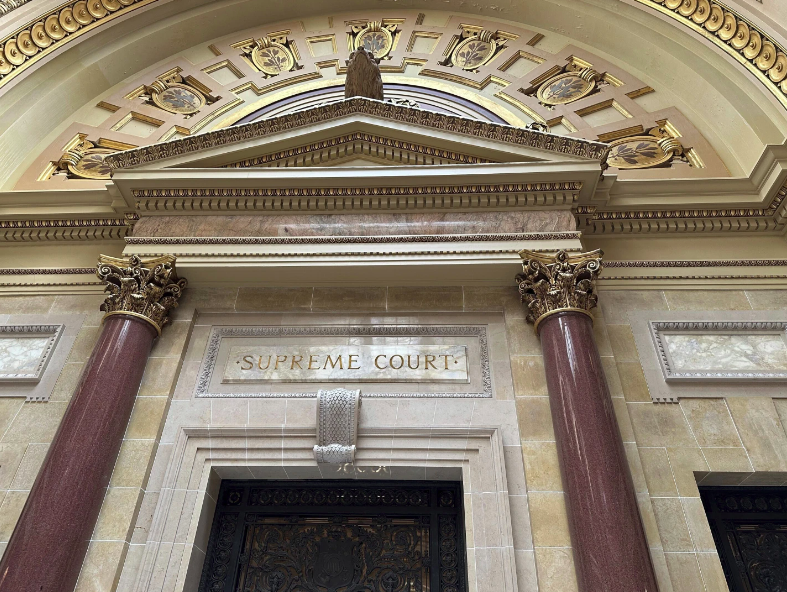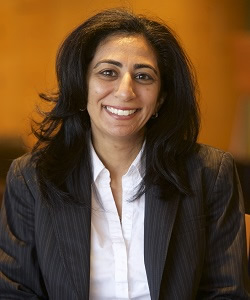By: Cynthia Soliman
A few days ago, I was on Facebook when I noticed that a friend had posted a video. The video was a montage depicting various scenes where the so-called Islamic State destroyed churches, knocking the crosses from the buildings and hoisting their flag in its place. Apparently there was some sort of narration, but I had the sound off. It didn’t matter anyway; the images alone told the story. After watching the video, I noticed a couple of things in the comments section: at least one commenter asked why the people in the film were doing this; and second, many people were focusing on the people in the film as terrorists, which is by no means a misnomer, but is a term that I believe may trivialize the gravity of what is happening.
While it’s true that ISIS is a terrorist group, I fear that in the minds of many, labeling them as such relegates ISIS’s actions to the realm of isolated acts of violence that are mostly distant from the United States, both in terms of physical proximity and in terms of effect on our own politics or freedoms. In short, the focus on ISIS as a terrorist group misses the bigger picture.
Perhaps it is because I just graduated with a master’s degree from Georgetown’s School of Foreign Service, because I’ve always been an international affairs “junkie,” and because I am a member of a religious minority and am therefore keenly aware of what religious minorities suffer at the hands of extremists, but for me, the big picture of groups like ISIS is understanding the threat they pose to the fundamental principle of freedom. It seems to me that the first step in battling ISIS is recognizing what their actions really mean. ISIS’s destroying churches is not just an insult to Christians or an act of isolated and distant violence perpetrated in the service of a hijacked religion, but it is a violation of religious freedom, and therefore a danger to anyone who values his or her own broader freedoms.
My interest in international affairs from a young age stemmed from the fact that not only was I the child of immigrants, but immigrants from a religious minority. As I began to realize growing up, being a Coptic Christian was not just about being part of a church with different rituals. It meant that I was part of a group that, despite almost two thousand years of history in the Middle East, was in danger of being eradicated. Growing up in the United States, it hardly occurred to me the magnitude of my opportunity, not just to believe in whatever I wanted (or not to believe in anything at all) but to do so wherever and whenever I wanted. That freedom took on a new form and meaning when I went to Egypt as a teenager and saw an army officer guarding a Coptic church with a machine gun in hand.
Images like that led me to study politics as an undergraduate and eventually global politics and security in the Master of Science in Foreign Service Program at Georgetown, where I focused on the Middle East. In my two years of graduate study at Georgetown, I’ve watched the daily news documenting how Christians have been forced from their ancestral homes in droves in Iraq, Syria, and Egypt. The human rights violations that accompany an absence of religious freedom could not be more evident.
This rather bleak situation led me to my current work as a research assistant for the Religious Freedom Project at the Berkley Center for Religion, Peace, and World Affairs, where I have had the opportunity to gain a broader understanding of what religious freedom means throughout the world, and why it is so important. If I could articulate just one lesson from my work here, it is the importance of recognizing religious freedom as a fundamental human right. Religion has been around, in some form or another, as long as people have existed. Wars and battles have been fought over the right to worship one god or another (the Thirty Years War, The Crusades, the Lebanese Civil War, to name a few), and even not to worship at all (The French Revolution). The problem with ISIS and any group that purports to tell others who and how they must worship is that once they take away your freedom to worship (or to not worship at all), they can take away all kinds of other rights as well, like the right to speak freely, the right to decide how you educate your children, and inevitably the right to decide by whom and how you want to be governed.
So, I would say to the Facebook commenter that the importance of the ISIS video that I described at the beginning of this piece primarily lies in what is happening, for we must understand what is really going on around the world before we can even begin to tackle why it is occurring. I hope in the future we can answer the “Why?” question, but that will not happen until more people are aware of the “what”: People are being stripped of their most basic human right—the right to freedom of religion—which inevitably leads to a loss of other precious freedoms. Once we recognize this, it becomes clear that religious freedom is a right worth fighting for.
Cynthia Soliman is a 2015 graduate from Georgetown’s Master of Science in Foreign Service program, with a concentration in global politics and security.
This piece was originally authored on August 24, 2015 for the Religious Freedom Project at Georgetown’s Berkley Center for Religion, Peace, and World Affairs.
THE RFI BLOG

How Soccer Reveals Different Meanings Of ‘Secular’ In France And The US

RFI’s Ismail Royer Meets with Delegation from India

Protecting the Unborn, Mothers, and Medical Ethics: The Stakes of Arkansas’ Amendment

Wisconsin Supreme Court Punishes Catholic Charities for Serving Everyone

Wisconsin Supreme Court Decision Truncates Religion
CORNERSTONE FORUM

Public Bioethics & the Failure of Expressive Individualism

Religious Liberty in American Higher Education

Scotland’s Kate Forbes and the March of Secularism

70 Years of Religious Freedom in Sweden: Prospects and Challenges


